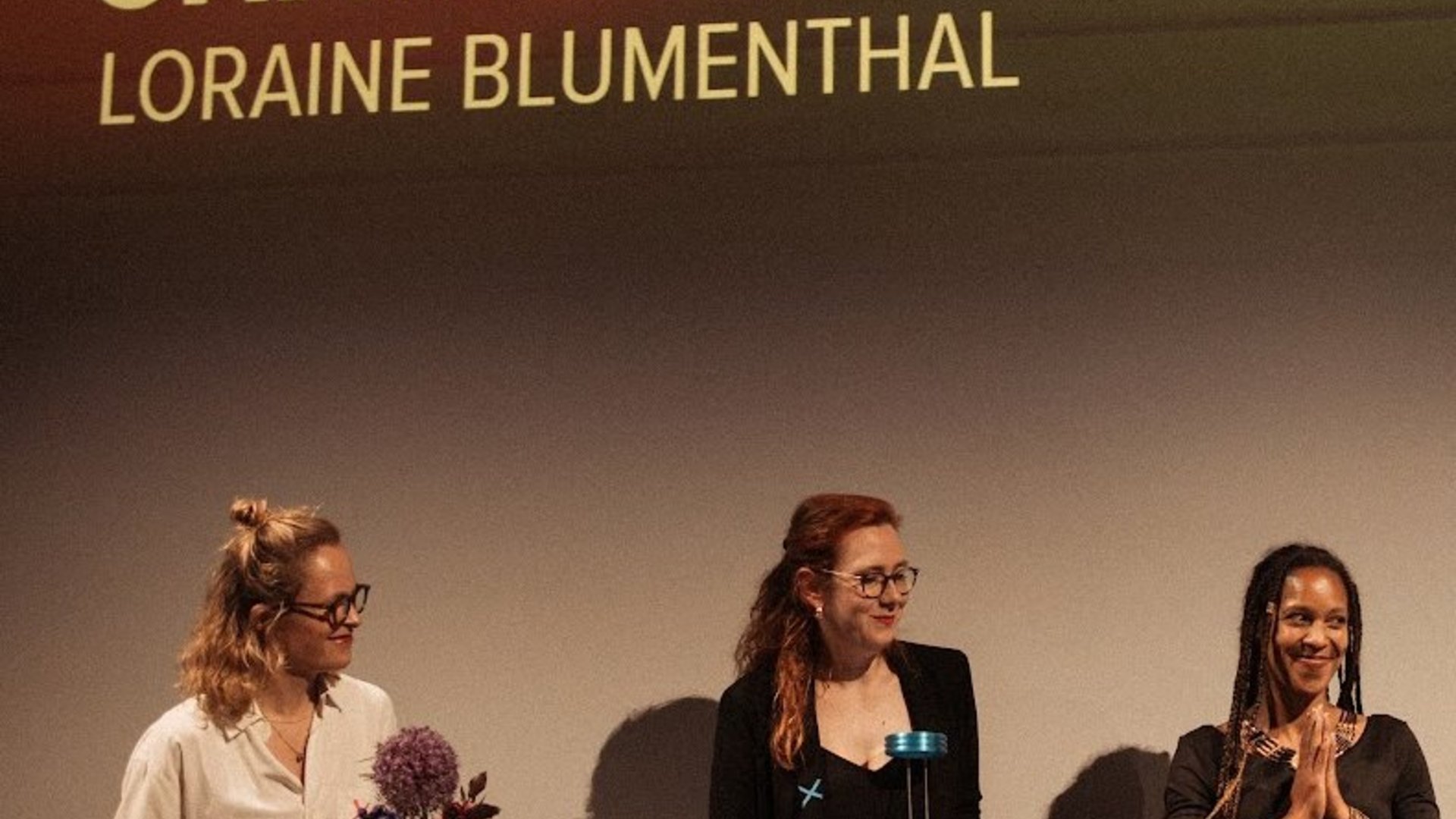
© Dovile Sermokas

© Dovile Sermokas
“Changing Sides” (2025) – Audience Award winner at the Doxumentale. Loraine Blumenthal’s documentary tells the story of football coach Eichi and his team of refugees in Torgelow. A story about solidarity, the past, and a shared future.
When Thomas “Eichi” Eichstätt, a football coach from Torgelow in Northern Germany, shows up at tournaments with his team, they immediately stand out. A tall, stocky man with a shaved head, tattoos, and a voice booming across the pitch, Eichi mainly trains refugees. On the field, the young adults lose themselves in the moment – but off the pitch, their past, job hunting, xenophobia, and the struggle for belonging catch up with them. For many, “Eichi” is a friend, though he himself has a dark past as a former right-wing extremist.
Loraine Blumenthal’s participated in the Good Media Lab and the Good Media Pitch in 2024 and went on to win the Audience Award at Doxumentale 2025. Loraine is currently touring with the film across Germany. Eighteen months after the pitch, we spoke with her about the impact that the Good Media Lab and the Good Media Pitch have had on her work.
How did the Lab concretely change your release or distribution strategy?
The usual way of releasing a film is a cinema premiere followed by Q&As. Thinking carefully about the different steps I wanted to take during the release has made the process much more complex. From festivals, to special screenings, to school screenings, developing workshops, building networks at the political and economic level, and even concrete efforts to get Eichi a job – it all means working in different directions and not just following the traditional release path.
Did the Lab shift or expand your understanding of distribution?
Documentary authorship often goes hand in hand with a form of activism. I have always been interested in making a difference with documentary film. In the Lab I learned above all to set clear goals. One of the most important points for me was realizing that raising awareness about an issue means formulating concrete steps and working toward them.
What new perspectives on your audience did you gain?
Through the screenings of IM OSTEN WAS NEUES, I became even more aware of how diverse my audience is. What is thematically a novelty for people in Southern Germany is everyday reality for people in the Northeastern region. Observing how far apart these realities – especially regarding class and migration experience – can be was very interesting. I also saw how reconciliatory the film can be between locals and people with refugee or migration backgrounds.
Were there moments when you realized: I’ve never thought about my film this way before?
Not so much “never thought before,” but it was hard for me to gauge how strong the interest and relevance would be. The elections, with a strengthening AfD and a conservative CDU, came just before the release and unfortunately made the subject even more relevant. The Lab definitely helped me think in new ways and work out how the film could achieve impact – through village screenings, workshops, or work in associations and schools.
Did the Pitch open doors – to partners, funders, or new networks?
Thanks to the Pitch I was able to connect with Warm Up, an ambitious organization that runs workshops in schools and offered to include IM OSTEN WAS NEUES in their program.
What would you recommend to other filmmakers facing similar decisions?
Basically, ask yourself: What is the core theme of my documentary? What change could the film bring about? And how can I achieve this with concrete steps? You don’t need a finished strategy, but at least an initial idea. Not every film requires an impact strategy, so those would be my first questions to ask yourself and your project.
If you had to describe the effect of the Lab on your project in one sentence, what would it be?
The Lab sharpened my impact plans, brought new ideas, allowed me to build an initial network of contacts, and inspired me greatly through the projects of other filmmakers.
Which impact of your film/project do you find most rewarding?
Since I am still at the beginning of my impact implementation, I can only speak about the first rural screenings at this point. I find it incredibly enriching to engage in conversations with people in Eastern Germany. As a woman with a migration background, it is wonderful to see how fellow Germans fight on the local level to hold the line and not give in to the far right.